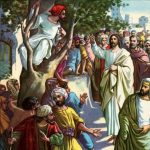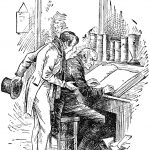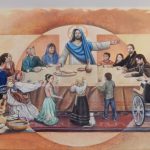Guess who’s coming to dinner
Seldom, I have observed, do we pause to consider of what the human body is comprised. Certainly if you are a physician, especially a surgeon, you will have studied and learned of the various components of our physical nature. Through modern science we have probed and examined in exacting detail, down to the subatomic level our DNA, the fundamental structures with which are constructed the physical manifestation and attributes which make each of us uniquely human. Should we compare the smallest definable component of our physical makeup to our full self we most assuredly must conclude that we are more than giants to the smallest element of all of which we are comprised.










